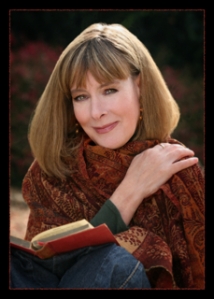 For the month of March we were joined by author Pamela Smith Hill who discussed researching and how to write a biography. Hill herself has written the award-winning biography Laura Ingalls Wilder: A Writer’s Life as well as three young adult novels. Currently, she is working on another book on Wilder, scheduled for publication in 2013. In an extremely organized and helpful presentation, Hill gave us tips that are vital for any author who wishes to write a biography, or even those who need research for any genre they are working on.
For the month of March we were joined by author Pamela Smith Hill who discussed researching and how to write a biography. Hill herself has written the award-winning biography Laura Ingalls Wilder: A Writer’s Life as well as three young adult novels. Currently, she is working on another book on Wilder, scheduled for publication in 2013. In an extremely organized and helpful presentation, Hill gave us tips that are vital for any author who wishes to write a biography, or even those who need research for any genre they are working on.
Hill began her presentation with Virginia Woolf’s question: “My God, how does one write a Biography?” The most important aspect, arguably, is that biographers must have a personal connection with their subjects; there must be some common interest so that you are – as Hill said – “living two lives simultaneously.” For Hill, her connection with Laura Ingalls Wilder occurred when she visited the Wilder home in 1965, where she was shown that writing, which seemed to be an impossible future, was in fact very achievable. From the personal connection, biographers must feel a unique and compelling story to tell, but it must also be told from a new perspective.
Research is the largest and most important step of writing a biography and Hill gave us a presentation on exactly what should be included and where to find it:
Firstly, your biography should be based on research, not on previously held assumptions. Also, keep an open mind when doing research and throughout the entire process of writing the biography.
There are four research categories, each with their own advantages and disadvantages: books, interviews, location, and of course, the internet. For all of these categories, it is important to weigh the credibility of your sources very carefully; especially in books, where the date of the publication can obscure facts and perspectives.
While doing book research such as through newspapers and magazines, look for obscure publications because they have the possibility of getting you closer to the people and places.
For interviews there are several different methods in which to conduct an interview. Email is very quick if you have just a quick question or two, but still don’t wait until the last minute. Be sure to think in context and include any additional information that they may need. Personal interviews may be less flexible but are still a very effective way of getting research.
The most glamorous category is location research, but it is also the most tedious. There is always the possibility of not getting results, and there is also the possibility of getting an incredible amount of results. If you go after you have written but before you publish, like Hill did, you can compare what you have written to reality or disprove it.
On the other hand, archival research is not so glamorous and involves a lot of time and effort. It is not always reliable because memories can change and interviews are often a large component of archival research.
Internet research is great for obtaining the details that help make a scene come to life. Yet, as we all know, the internet is not always the most reliable place so be extra cautious when using these sources and remember that it is perfectly acceptable to let your readers know when your research is contradictory or inconclusive. And always make sure that you keep good records of notes.
Hill’s last piece of advice for researching and writing biographies was to read biographies. Just as poets read poetry and fantasy writers read fantasy. As you work on your biography, you will become “a biographer, a tourist, and an intruder.”








